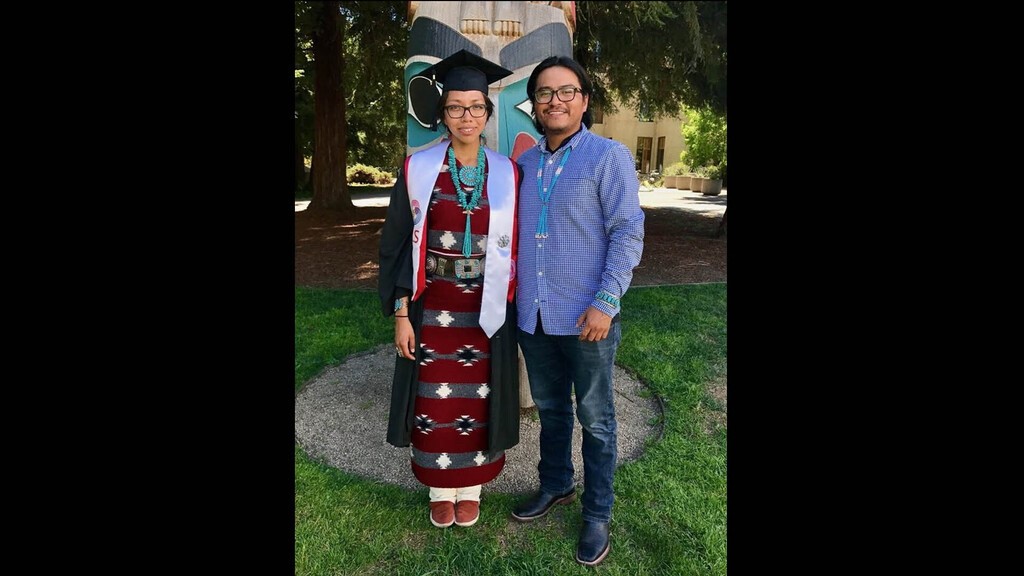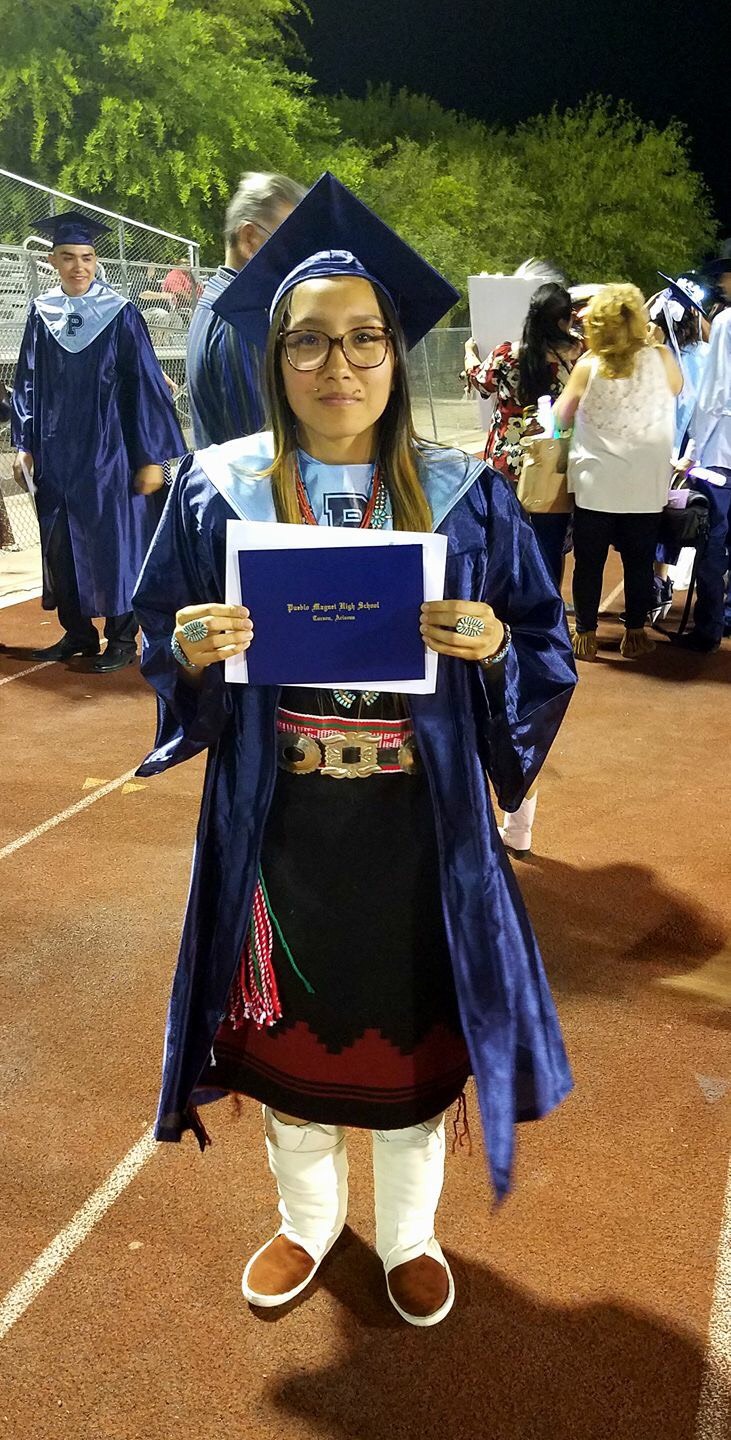 Arizona State Rep. Jasmine Blackwater-Nygren and her husband at her graduation at Stanford University.
Arizona State Rep. Jasmine Blackwater-Nygren and her husband at her graduation at Stanford University.
Indigenous students may soon not need to ask permission to wear traditional clothing or items at graduation.
A bill, HB 2705, currently in the Arizona Legislature prohibits public or charter schools from blocking students from wearing culturally-significant regalia. The proposal has passed the House with only two no votes and is expected to pass the Senate unanimously in the coming days before heading to Gov. Doug Ducey for his signature.
Madeline Jeans graduated from Pueblo High School in 2017. She wore her aunt's Navajo regalia for the ceremony — a black Pendleton dress with red accents.
"So it was very emotional. I was just very proud to graduate and wear my regalia that day — to just like represent my people," Jeans said.
But she had to ask the Tucson Unified School District for permission for that honor--for permission to be herself as a Navajo, Pascua Yaqui and Otoe woman.
"It was just kind of heartbreaking like when I got accepted but my other peers didn't get the permission. It was just for me, like alone, so few of my peers had sneak their feathers in or their regalia in," Jeans said.
In December 2018, she was one of the students who advocated for TUSD to allow people to wear their regalia at the upcoming graduation. They won, but it wasn't until the following spring that the district changed its policy permanently to allow students of all backgrounds to wear culturally significant regalia for graduation.
 VIEW LARGER Maddy Jeans at her 2017 graduation.
VIEW LARGER Maddy Jeans at her 2017 graduation. After a year of racial justice protests, former Arizona State Rep. Arlando Teller introduced a bill allowing Indigenous students to wear their regalia at graduation.
State Rep. Jasmine Blackwater-Nygren, who replaced Teller earlier this year, picked up the bill. As a member of the Navajo Nation, she knows personally why this is important.
"At a time when it feels like we're losing our language and our culture, this is something that will allow students to be proud of who they are and what they wear, and not face any challenges," Blackwater-Nygren said.
When she graduated from Stanford University, she wore a Navajo red rug dress that retold a portion of the Creation story, jewelry from her grandmother and her moccasins.
"They say when you wear your moccasins, you are in a holy state of being, and that you are directly connected to Mother Earth," Blackwater-Nygren said.
Kelsey Dayle John is an assistant professor at the University of Arizona in American Indian Studies. She's also Navajo and said it's important to remember that Native Americans across the country were taken from their families and forced to give up their culture and language all in the name of schooling.
"Having a policy that says, 'Hey, you don't have to feel like you have to ask permission to be yourself' is showing that schools are supportive of Native people being Native and being successful in education at the same time," John said.
John said both Black and Indigenous communities know what it's like to have their dress, their cultures and their hair criminalized through the racial systems set up through colonization.
An ordinance is up for a vote in the Tucson City Council that proposes schools and most employers not be allowed to force a person to change their natural hairstyle.
"It is really important to make being a Black person or being a Native person in schools something that is not against the rules," John said.
She said these moves are one step toward dismantling school policies that enforce racial hierarchies.

By submitting your comments, you hereby give AZPM the right to post your comments and potentially use them in any other form of media operated by this institution.